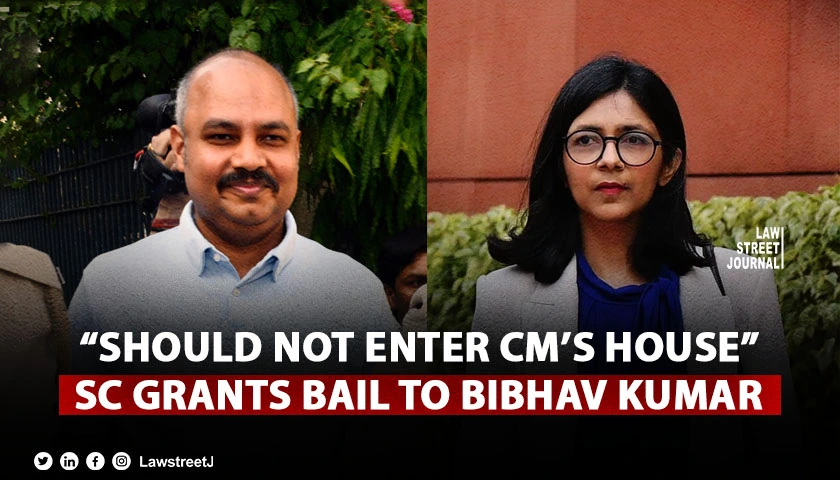NEW DELHI: The Supreme Court on Monday granted bail Bibhav Kumar, a close side of Arvind Kejriwal in a case of "brutal assault" upon AAP's Rajya Sabha MP Swati Maliwal at the official residence of the Chief Minister on May 13.
A bench of Justices Surya Kant and Ujjal Bhuyan, however, directed he should not be reinstated to his position and he would not be allowed to enter the Chief Minister's residence. The court also directed him not to make any comment on the pending case.
During the hearing, the court noted that the investigation has been completed after the filing of the charge sheet and the accused petitioner has remained in custody for over 100 days.
The bench told Additional Solicitor General S V Raju, appearing for the Delhi police, that this was a case of minor injuries and he should not oppose bail in the matter.
The court also noted there were more than 51 witnesses and the trial will take time to conclude and as the charge sheet has been filed, there was no chance of him influencing the witnesses.
On behalf of the petitioner, senior advocate A M Singhvi said since most of the witnesses were the officials of Delhi police, there was no possibility of him influencing them. He also questioned use of Section 308 of the IPC related to attempt to commit culpable homicide in his case.
Raju, however, contended the bail should be deferred till the examination of private witnesses.
Also Read: Swati Maliwal Assault Case: Kejriwal's aide Bibhav Kumar files plea in SC for bail
The bench ordered to release the petitioner on bail with the clear conditions that he should not be restored to the position the personal secretary of the Chief Minister or be given any official assignment. It also restrained the petitioner from entering the official residence of the Chief Minister.
During the hearing, a counsel for the complainant raised the issue of malicious campaign raised against her.
The petitioner was arrested on May 18 for assaulting Maliwal on May 13 at Kejriwal's official residence here.
The FIR was registered against him on May 16 under various provisions of the Indian Penal Code, including those related to criminal intimidation, assault or using criminal force on a woman with the intent to disrobe and attempt to commit culpable homicide.
He challenged the Delhi High Court's order of July 12 which rejected his bail application, observing that the possibility of him influencing the witness or tampering with evidence could not be ruled out.















